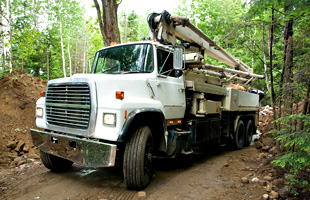Septic systems are designed to be put in place and forgotten about until it’s time to have the tank pumped. When caring for an industrial septic system in Hudson WI it’s easy to forget just what kind of service is needed. The first step in understanding how to care for the system is understanding how it works. There are usually three major parts to the system. The tank is intended to remove solid waste from liquid waste and assist in biodegradation. The affluent system is intended to dispose of liquid waste in a safe way that prevents anyone in the immediate area from being exposed to sewage. The soil absorption area is intended to aid in the disposal of liquid waste by dispersing the harmless liquid into the immediate area and allowing it to biodegrade.
These three major parts account for the majority of the system, but the sewage system in the structure is a different matter. Service providers for an Industrial Septic System in Hudson WI don’t handle anything that isn’t directly connected to the system. Any issues inside the building will need to be handled by a plumber. For services such as drainage problems in the soil absorption area or the holding tank itself a septic system service provider is who should be called. Scheduling well ahead of time to have the tank pumped is the best way to avoid serious issues such as sewage backup or drainage field seepage.
These services are usually only needed every few years but if there are any questions about how much time is needed before the system needs to be pumped it’s important to call a local service provider right away. Property owners who have septic systems can click here for more information. If maintenance needs to e scheduled it’s best to call the service provider for an inspection. Regular inspections are necessarily needed very often but it’s a good idea to have the system checked for issues that might not be visible or obvious. Most importantly, it’s important that older systems are checked for integrity about every three years in order to avoid a complete failure that could result in fines or property damage.





